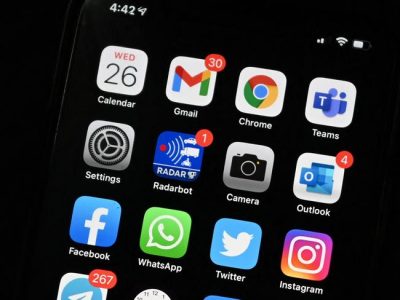Pegasus: Israel Designated Palestinian NGOs ‘Terrorist’ to Cover Hacking Tracks, Report Says
Sources tell Ynet that Israel rushed to label groups 'terrorist organisations' after realising that the hacking of NGO workers' phones would be made public

All Global Research articles can be read in 51 languages by activating the “Translate Website” drop down menu on the top banner of our home page (Desktop version).
To receive Global Research’s Daily Newsletter (selected articles), click here.
Visit and follow us on Instagram at @crg_globalresearch.
***
Israel rushed to designate six Palestinian human rights groups as “terrorist organisations” after learning that investigators had discovered NSO Group’s Pegasus spyware on the phones of the group’s staff members, Ynet has reported.
Israeli officials were also caught off guard last week when the US blacklisted the NSO Group, saying its activities were contrary to US national security interests.
Warned one hour before the US blacklisting was made public, the Israeli officials were forced to hold several urgent situation meetings, with one official reportedly blurting out in a meeting: “What the fuck?!”
The three incidents – the discovery of spyware on the Palestinian NGOs’ phones, the designation of these NGOs as terrorist organisations, and the blacklisting of NSO Group – all happened within a three-week period and reflect brewing US-Israel tensions, according to the report by a Ynet senior military and political analyst.
“This is part of a campaign that has long been not just a conflict between the American internet industry and the cyber company from Herzliya, nor a conflict between the government and the NSO,” Ynet reports. “But a broad front that opened between the White House and the State Department and the Israeli government.”
‘Retroactive cover-up’
According to Ynet, Israel had started the process of banning the Palestinian groups earlier this year, but hastened its decision when it learned about an investigation led by the Dublin-based Front Line Defenders (FDL), which revealed on Monday that the phones of Palestinian activists working for the outlawed groups had been hacked.
The report comes as speculation mounts that Israeli security services were behind the hacking, which involved both Israeli and Palestinian telephone numbers.
Among those hacked are Ubai al-Aboudi, a US citizen who heads the Bisan Center for Research and Development, and French national Salah Hammouri, a field researcher at Addameer.
FDL, whose work was reviewed and verified by Amnesty and Citizen Lab, told Middle East Eye that they cannot say definitively who was behind the hacking of the NGOs. But Haaretz has reported that the export licence issued by the Israeli defence ministry to NSO Group only permits Israeli security services to monitor Israeli phone numbers.
Human rights advocates have said the discovery of the spyware on the phones, shortly before Israeli Defence Minister Benny Gantz designated the groups as terrorist organisations, is suspicious.
Others have drawn firm conclusions.
“The Israeli government sought to retroactively cover up and justify the use of the spyware on members of the six designated Palestinian organisations and others who communicated with them,” Sarah Leah Whitson, executive director of Democracy for the Arab World Now (DAWN), said on Monday.
Israeli security sources denied that they used Pegasus to hack the Palestinian human rights activists, according to Ynet, which also revealed that Israeli officials had been unsuccessful in convincing their US counterparts that the groups had terrorist links.
NSO Group has said that “due to contractual and national security considerations” it cannot confirm or deny its government customers.
“As we stated in the past, NSO Group does not operate the products itself; the company licence approved government agencies to do so, and we are not privy to the details of individuals monitored,” a spokesperson told The Guardian.
The Israeli government will reportedly be increasing its lobbying efforts in the coming days to push the US to backtrack on its decision to blacklist the NSO Group.
*
Note to readers: Please click the share buttons above or below. Follow us on Instagram, @crg_globalresearch. Forward this article to your email lists. Crosspost on your blog site, internet forums. etc.

